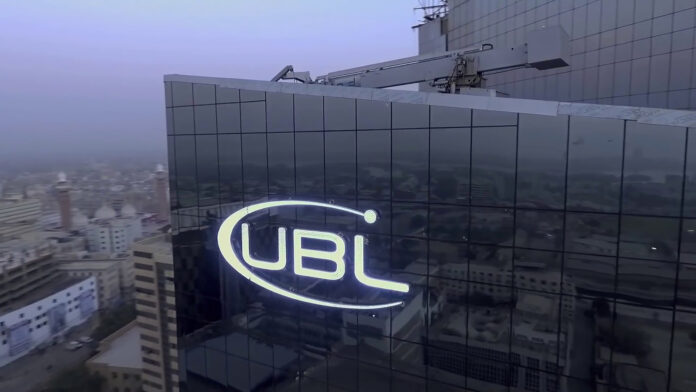KARACHI: Mere days after the State Bank of Pakistan (SBP) cracked down on currency exchange companies to control the dollar, United Bank Limited (UBL) has announced that it is establishing an exchange company.
The announcement comes a week after the central bank rolled out reforms to control the country’s foreign exchange markets. Because of these reforms, other commercial banks might soon be following suit.
The announcement means UBL has now become the third major commercial bank to also operate an exchange company after Habib Bank Limited (HBL) and the National Bank of Pakistan (NBP). UBL’s board of directors announced that the new exchange company would be endowed with Rs 1 billion as paid-up capital.
HBL’s HBL Currency Exchange (Pvt.) Ltd. is a wholly-owned subsidiary, while National Bank Limited operates NBP Exchange Company Limited is also under full ownership. According to NBP Exchange Company Limited’s annual statement, the subsidiary concluded the calendar year of 2022 with an equity balance of a robust Rs 1.8 billion and a profit of nearly Rs 44 crores yielding a return on equity of a whopping 24%. This shows the lucrativeness of the foreign exchange business.
UBL Exchange Company
This decision to set up an exchange company disclosed through an official stock filing signifies a pivotal step for UBL. The newly conceived exchange company will be classed as a wholly-owned subsidiary of the bank. This transformational move is contingent upon receiving the seal of approval from the State Bank of Pakistan (SBP), alongside adherence to various regulatory prerequisites.
This momentous development follows the recent concerted crackdown against black market operatives, and the subsequent announcement by the State Bank of Pakistan (SBP) to introduce structural reforms in the Exchange Companies’ sector.
SBP unveiled a set of reforms related to exchange companies:
The point of the recent crackdown has been to rein in the open market and strengthen governance, internal controls, and compliance culture in the sector. As part of these reforms, leading banks actively engaged in foreign exchange business would establish wholly owned Exchange Companies to cater to the legitimate foreign exchange needs of the general public.
Additionally, the minimum capital requirement for Exchange Companies has been increased from Rs 200 million to Rs. 500 million, free of losses.
There are two categories of exchange companies, A and B. Exchange companies in category A have a higher minimum capital requirement — Rs 200 million — while those in category B have a lower minimum capital requirement of Rs 25 million. The latter can only act as money changers. Under the SBP’s reforms, all exchange companies in categories A and B along with franchises of exchange companies will be consolidated and transformed into a single category with a well-defined mandate.
Category B exchange companies have three options: merge with an existing exchange company, upgrade to the full exchange company status, or consolidate with other category B exchange companies to form a unified entity. They must approach the SBP within one month to obtain a no-objection certificate (NOC) for one of these choices. Following NOC issuance, category B exchange companies have three months to fulfil regulatory and legal requirements for formal licensing. Failure to do so will result in license cancellation.
Meanwhile, franchises of exchange companies have two options: merge with the parent exchange company or sell their franchise to it. Franchises must seek central bank approval for the merger or sale within one month, or their licenses will be revoked.
The reforms come a little over a year after the SBP suspended the operations of several branches and franchises of exchange companies over regulatory violations. The central bank had launched a crackdown against exchange companies on apprehensions that they were not selling foreign currency to customers despite availability, leading to exchange rate volatility and a wide difference in rates offered in the interbank market and those quoted by the companies and commercial banks.
























I appreciate you providing this insightful information; I believe it will be beneficial to everyone.
good
please check my account details and ricamandition send me please
please check my account details and ricamandition send me
cnic
1120194777691
I am employee in Ravi exchange company and I am interested in ubl exchange job